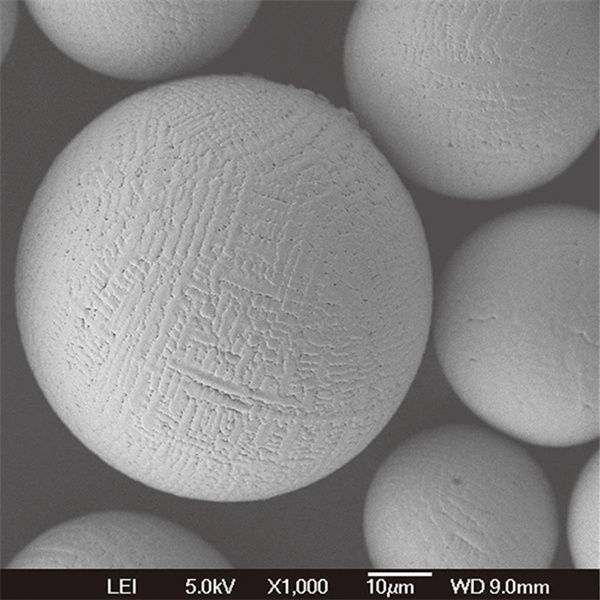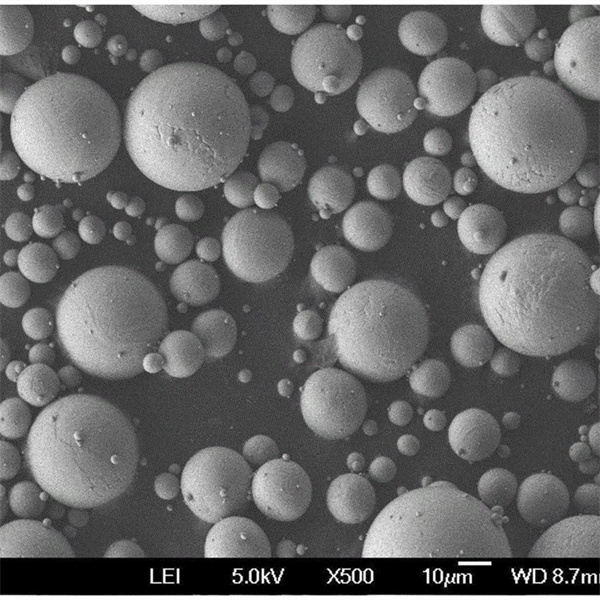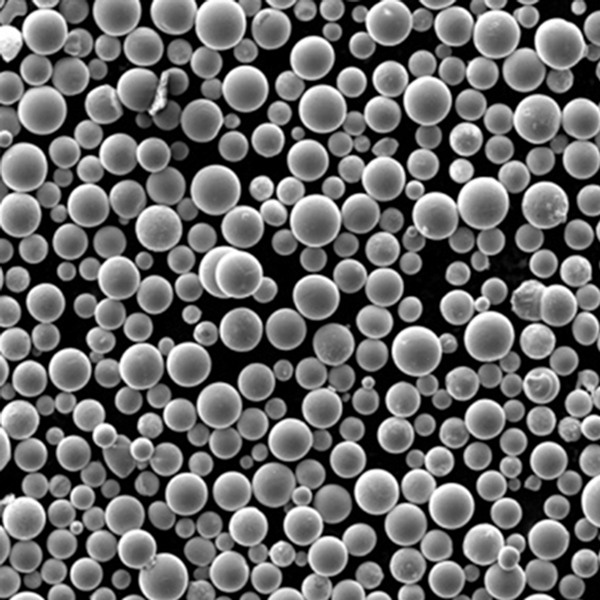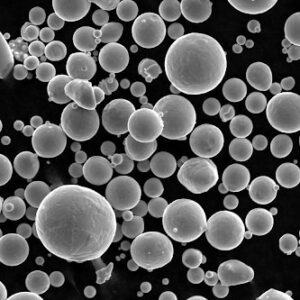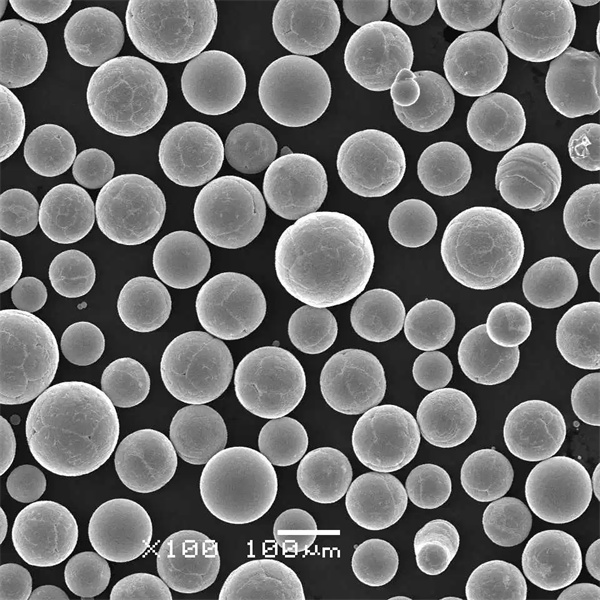GH3625 powder(Inconel 625 powder)
GH3625 is a Mo-Nb reinforced nickel-based high-temperature alloy. It has strong resistance to corrosion and oxidation, especially stress corrosion in salt spray atmosphere.
The maximum long-term service temperature of the alloy is 950°C, and the alloy has good tensile and fatigue resistance properties below 980°C.
Low MOQ
Provide low minimum order quantity to meet different needs.
OEM & ODM
Provide customized products and design services to meet unique customer needs.
Adequate Stock
Ensure fast order processing and provide reliable and efficient service.
Customer Satisfaction
Provide high quality products with customer satisfaction at the core.
share this product
Table of Contents
Overview
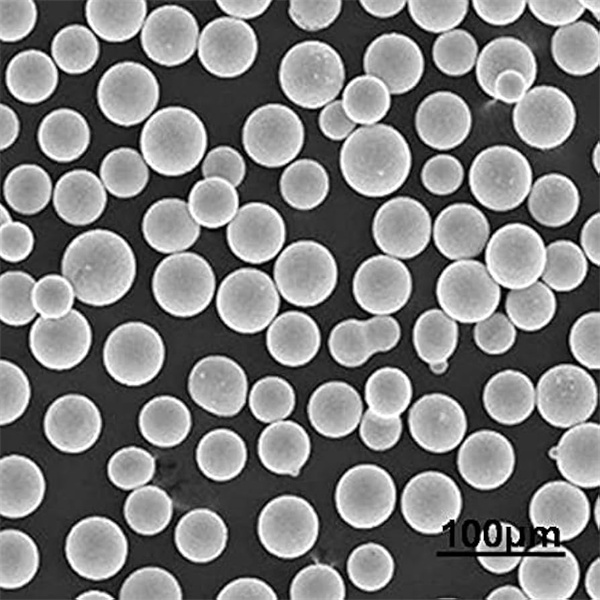
GH3625 powder is an alloy powder used for metal additive manufacturing processes like selective laser sintering (SLS) and direct metal laser sintering (DMLS). It is a nickel-based superalloy that offers high strength, corrosion resistance, and excellent high-temperature properties.
GH3625 is designed specifically for additive manufacturing to produce complex, dense parts with exceptional mechanical properties comparable to wrought materials. It enables the production of lightweight components with complex geometries for aerospace, automotive, medical, and industrial applications.
This guide provides a detailed overview of GH3625 powder covering its composition, properties, applications, specifications, pricing, advantages, and limitations. Comparisons are made to other common alloys like Inconel 718 and Stellite 21 to highlight the performance and suitability of GH3625 for different uses. An FAQ section addresses key questions about this material.
GH3625 Powder Composition
GH3625 has a complex chemical composition designed to provide a combination of high strength, resistance to thermal fatigue, oxidation, and corrosion resistance. Here is an overview of its composition:
| Element | Weight % |
|---|---|
| Nickel | Balance |
| Chromium | 15-17% |
| Cobalt | 10% |
| Molybdenum | 8-10% |
| Tantalum | 5-6% |
| Aluminum | 1.2-1.7% |
| Titanium | 0.5-1.2% |
| Boron | 0.01% |
Nickel forms the base of this superalloy providing ductility and toughness. Elements like chromium, cobalt, and molybdenum contribute to high temperature strength through solid solution strengthening.
Tantalum provides solid solution strengthening and forms carbide particles for precipitation hardening. Aluminum and titanium form the gamma prime phase Ni3(Al,Ti) to give excellent high temperature mechanical properties. Boron enhances grain boundary strength.
The balanced composition gives GH3625 powder excellent weldability compared to precipitation hardening stainless steels. It can be easily post-processed through hot isostatic pressing (HIP), heat treatment, and machining.
GH3625 Powder Properties
GH3625 powder has the following physical and mechanical properties that make it suitable for demanding applications:
GH3625 Powder Properties
| Property | Value |
|---|---|
| Density | 8.1-8.5 g/cc |
| Melting Point | 1260-1335°C |
| Thermal Conductivity | 11-12.5 W/mK |
| Coefficient of Thermal Expansion | 12.5-13.5 x 10<sup>-6</sup>/K |
| Modulus of Elasticity | 156-186 GPa |
| Poission’s Ratio | 0.29-0.33 |
| Tensile Strength | 1050-1280 MPa |
| Yield Strength (0.2% offset) | 860-1050 MPa |
| Elongation | 8-15% |
| Hardness | 32-38 HRC |
The high melting point, thermal conductivity, and low coefficient of thermal expansion enable good dimensional stability under high temperature service environments up to 1000°C for limited periods.
The alloy has excellent tensile and yield strength comparable to wrought materials along with good ductility and fracture toughness. It exhibits high hardness, resistance to wear, galling, and abrasion.
The properties allow GH3625 to outperform stainless steels, cobalt alloys, and even rival precipitation hardening nickel superalloys in high temperature strength. It also offers better weldability than Inconel 718.
GH3625 Powder Applications
The combination of high strength, hardness, toughness, and thermal stability makes GH3625 suitable for:
GH3625 Applications
| Industry | Components |
|---|---|
| Aerospace | Turbine blades, combustor parts, nozzle guide vanes |
| Automotive | Turbocharger wheels, manifolds, valves |
| Oil and Gas | Wellhead parts, downhole tools, valves |
| Power Generation | Heat exchangers, burner components |
| Chemical Processing | Pump impellers, valves, reaction vessels |
| Medical | Dental implants, prosthetics, surgical instruments |
The ability to 3D print complex geometries allows consolidating multiple parts into single components and lightweight lattice structures. This enables faster printing of single-piece components versus assembling multiple sections.
GH3625 is used to print blades, impellers, plates, discs, tubes with conformal cooling channels, and other mission-critical components working under high pressures and temperatures.
GH3625 Powder Specifications
GH3625 powder for AM processes is available in different size distributions, shapes, and formulations from various powder manufacturers.
GH3625 Powder Types
| Specification | Details |
|---|---|
| Particle Size Distribution | 15-45 μm, 15-53 μm, 53-150 μm |
| Particle Shape | Spherical, satellite, polyhedral |
| Alloy Modifications | With B, C, Zr, Nb, Ta |
| Manufacturing Method | Gas atomization, plasma atomization |
Gas atomization and plasma atomization produce spherical powders optimal for SLS/DMLS processes. Satellite powders have higher tap density and improve powder flowability.
Smaller 15-45 μm powders provide high resolution and surface finish while larger 53-150 μm allow faster build speeds. Different alloying additions like boron, carbon, zirconium, niobium, and tantalum are used to tailor material properties.
GH3625 Powder Standards
| Standard | Description |
|---|---|
| ASTM F3056 | Standard specification for additive manufacturing nickel alloy |
| AMS7016 | Nickel alloy powder for high temperature service |
| ASME B46.1 | Surface texture requirements |
GH3625 powder is qualified based on composition limits, particle size distribution, morphology, flowability, apparent density, and microstructure per ASTM F3056. Additional testing as per application standards is required.
GH3625 Powder Pricing
GH3625 powder is more expensive than stainless steel powders due to the complex composition and proprietary nature. Here are typical price ranges:
GH3625 Powder Cost
| Powder Grade | Price Range |
|---|---|
| GH3625 | $90-200 per kg |
| GH3625 + Boron | $110-250 per kg |
| GH3625 + Carbon | $100-220 per kg |
Prices vary based on order quantity, particle size distribution, shape, manufacturing method, supplier, and additional powder characterization or qualification requirements.
GH3625 Powder Pros and Cons
GH3625 has the following advantages that make it a popular choice:
GH3625 Pros
- Excellent strength and hardness up to 1000°C
- Good corrosion and oxidation resistance
- Weldable for post-processing
- Higher ductility than Inconel 718
- Can be age hardened by heat treatment
- Complex geometries enabled by AM
- Faster and cheaper than castings
- Reduces part count through consolidation
GH3625 Cons
- More expensive than stainless steels
- Lower strength than Inconel 718 above 550°C
- Susceptible to strain-age cracking
- Requires hot isostatic pressing (HIP)
- Difficult to machine – requires specialist tools
- Limited supplier data on long term performance
Proper selection of AM process parameters and post-processing mitigates some of the limitations of GH3625 powder.
Comparison of GH3625 with Inconel 718 and Stellite 21
GH3625 occupies a niche between Inconel 718 and Stellite 21 in terms of properties and cost:
Alloy Comparison
| Property | GH3625 | Inconel 718 | Stellite 21 |
|---|---|---|---|
| Cost | Medium | High | Low |
| Density | High | Medium | High |
| Strength | Medium | Very High | Medium |
| Hardness | High | Medium | Very High |
| Wear Resistance | Medium | Low | Very High |
| Corrosion Resistance | Medium | High | Medium |
| Oxidation Resistance | Medium | High | Medium |
| Thermal Stability | Up to 1000°C | Up to 700°C | Up to 900°C |
| Weldability | Good | Poor | Medium |
| Manufacturability | Medium | Difficult | Easy |
GH3625 matches or exceeds the performance of Stellite 21 cobalt alloys in wear and corrosion resistance but at lower cost. It approaches the strength of Inconel 718 up to 550°C and offers better weldability and manufacturability.
This makes it a cost-effective alternative for many applications requiring performance between these standard alloys. The ability to 3D print complex geometries also gives it an edge.
GH3625 Powder – FAQs
Q: What is GH3625 powder?
A: GH3625 is a nickel-based superalloy powder specifically designed for additive manufacturing processes like selective laser sintering (SLS) and direct metal laser sintering (DMLS). It provides an excellent combination of high temperature strength, hardness, wear and corrosion resistance.
Q: What is GH3625 powder used for?
A: GH3625 powder is used to 3D print critical components like turbine blades, manifolds, impellers, heat exchangers that require high mechanical properties, dimensional stability, and thermal resistance up to 1000°C. It finds applications across aerospace, automotive, energy, chemical processing, and medical industries.
Q: What metal 3D printing processes use GH3625 powder?
A: Selective laser sintering (SLS) and direct metal laser sintering (DMLS) are powder bed fusion 3D printing processes commonly used with GH3625 powder. Binder jetting is also suitable for GH3625.
Q: What are the material properties of GH3625?
A: GH3625 has excellent tensile strength 1050-1280 MPa, yield strength 860-1050 MPa, and hardness 32-38 HRC similar to wrought materials. It has good ductility of 8-15% elongation and high resistance to wear, galling, abrasion, and corrosion. Thermal properties allow use up to 1000°C.
Q: Does GH3625 powder require heat treatment?
A: Yes, GH3625 parts printed using SLS/DMLS require hot isostatic pressing (HIP) followed by heat treatment to achieve optimal mechanical properties, material consolidation, and microstructure. HIP helps close internal pores and voids.
Q: Is GH3625 weldable?
A: GH3625 is designed to have excellent weldability compared to precipitation hardening stainless steels and Inconel 718. This allows repairing and joining AM GH3625 parts through welding. Stress relieving may be required after welding to prevent cracking.
Q: Is GH3625 machinable?
A: GH3625 is difficult to machine compared to stainless steel and requires high-speed machining with specialist carbide tools. Tool wear is higher so optimal feeds, speeds, and tool paths are necessary.
Q: How much does GH3625 powder cost?
A: GH3625 typically costs between $90-250 per kg based on order size, particle size distribution, manufacturing method, and additional testing/qualification requirements. It is more expensive than stainless steel powders but lower cost than Inconel 718.
Conclusion
GH3625 is an advanced nickel-based superalloy designed specifically for additive manufacturing of high-performance components. It offers the advantages of both conventional alloys and AM-enabled design flexibility.
Carefully controlled powder characteristics and specialized parameter optimization allow exploiting the full potential of GH3625. With its properties and cost-effectiveness, GH3625 is emerging as a viable alternative to traditional alloys across critical aerospace, automotive, energy, and industrial applications.
About Met3DP
Product Category
HOT SALE
CONTACT US
Any questions? Send us message now! We’ll serve your request with a whole team after receiving your message.

